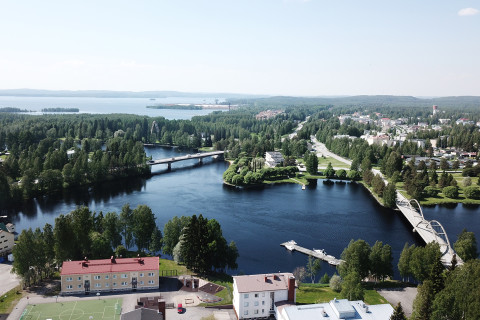In his doctoral dissertation, MSSc Juha Halme investigates local stakeholder collaboration in regional place marketing, focusing on two regional place marketing projects carried out in Eastern Finland between 2011–2015. The empirical material consists of documental data and semi-structured interviews of the steering group members of the projects. The study applies a discursive model of collaboration to examine how broader societal discourses which underpin the place marketing practices affect the dynamics of the collaboration. The examination will be held online on the 12th of December at 12 pm (UTC+2) at https://stream.lifesizecloud.com/extension/6043763/e234062f-1b85-4a2b-9304-eea0ef5c19c9. The public examination will be held in English.
The results indicate that societal discourses of regional competitiveness and attractiveness are applied in the collaborations as discursive resources to form a common ground between collaborators. However, these discourses were also found to hold conflicts of interests, and produced biased power dynamics between stakeholders where the interests and positions of regional centers were found to be dominant in both studied projects.
Many European regions are facing downsizing trends such as population decline and a dwindling of financial resources. As a response, regions have started applying place marketing practices which are intended to curb these trends by attracting and repatriating economic and human resources to the region. In the European Union (EU), these practices align with the EU’s regional policy and are supported by European Structural Funds (ERDF). In this framework, place marketing activity is carried out as public-private partnership projects between various in-region stakeholders. Stakeholder participation has been acknowledged as crucial aspect for successful place marketing or branding practices. However, stakeholder participation has been also considered susceptible to conflicts of interests and power struggles due the selective nature of place marketing practices, where certain geographic or symbolic assets are promoted, and others omitted.
This study argues that the discursive perspective of stakeholder collaboration can contribute in identifying communicative dynamics which can either support the collaboration, or undermine it by privileging the voice of select stakeholder groups. Hence, it offers tools for better stakeholder coordination that can support more inclusive place marketing and branding practices. It urges place marketing practitioners to critically evaluate the influence of the discourses of attractiveness and competitiveness which underpin the place marketing practices, and their relation to the dynamics between the stakeholders involved in the collaboration.
The doctoral dissertation of MSSc Juha Halme, entitled Attractiveness and competitiveness … but for who? Regional place marketing collaboration from a discursive perspective will be examined at the Faculty of Social Sciences and Business Studies. The opponent in the public examination will be docent Ilari Karppi, Tampere University, and the custos will be dosent Petri Kahila, University of Eastern Finland.
